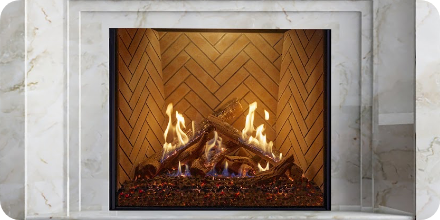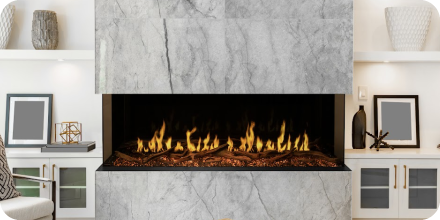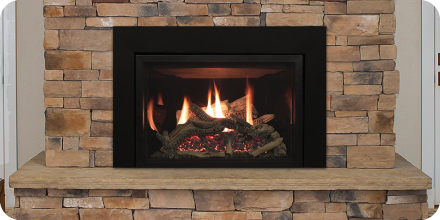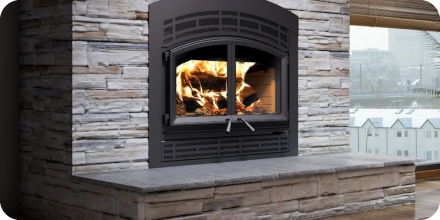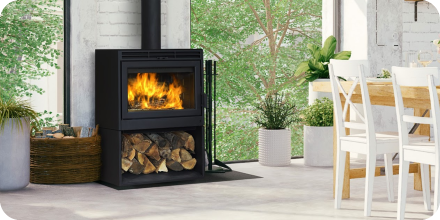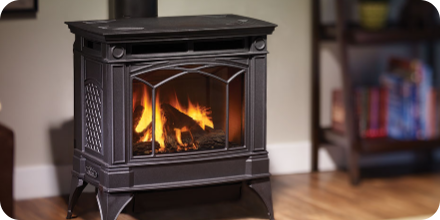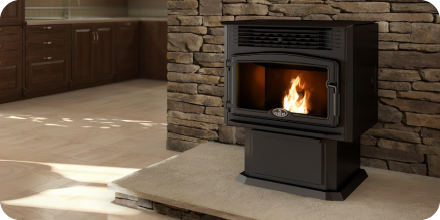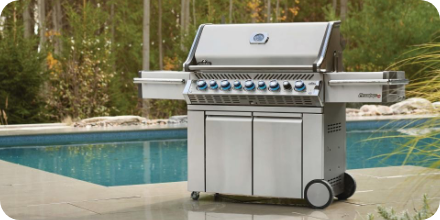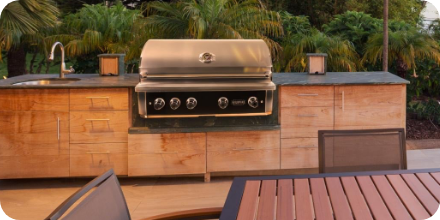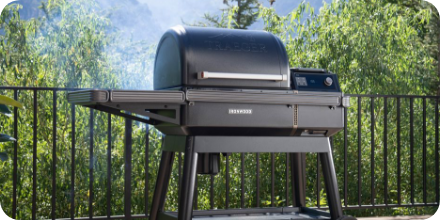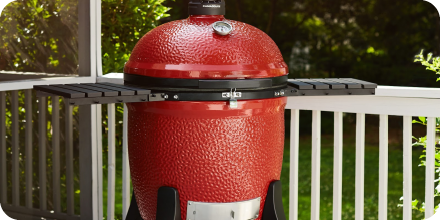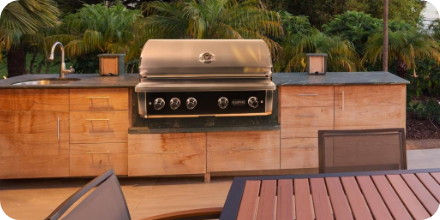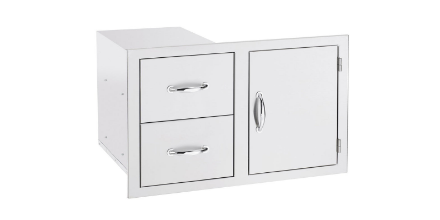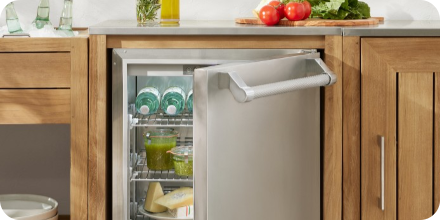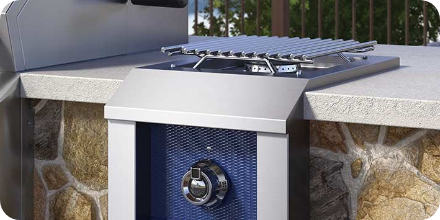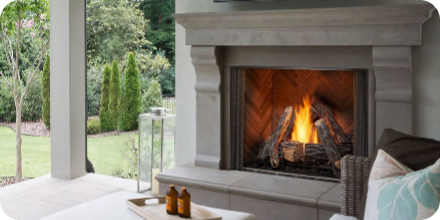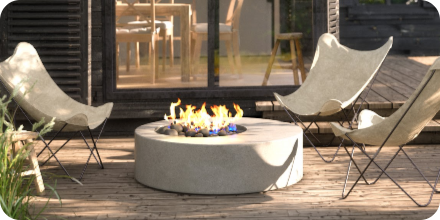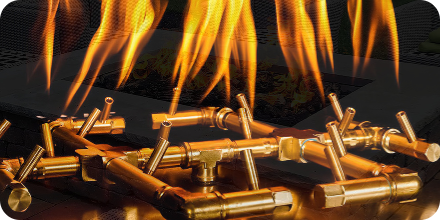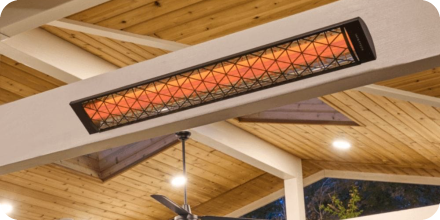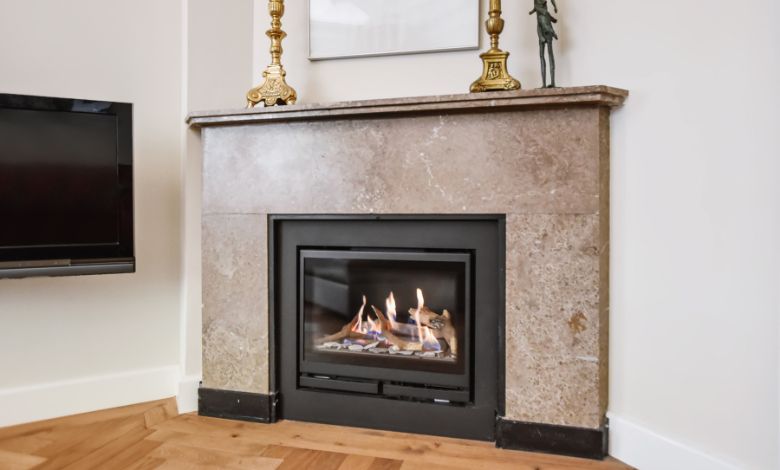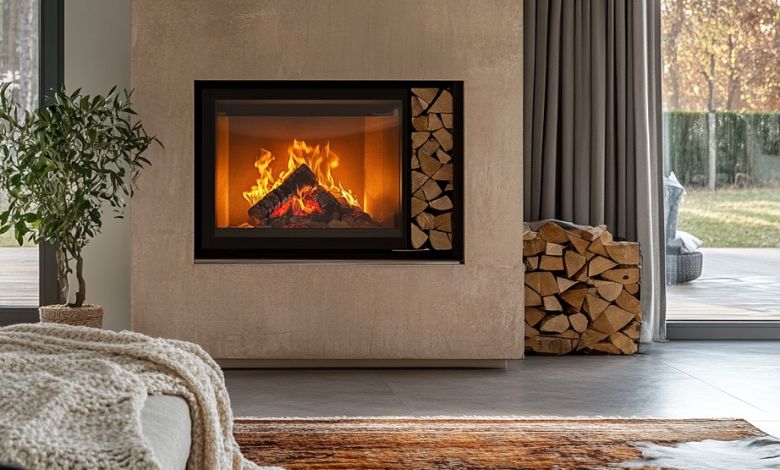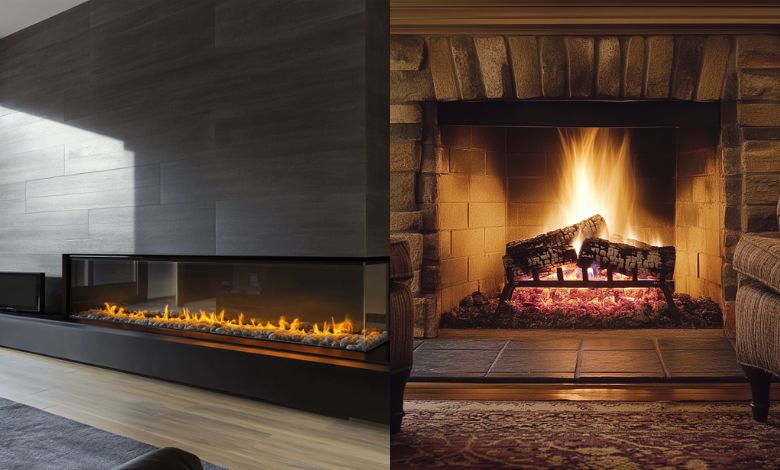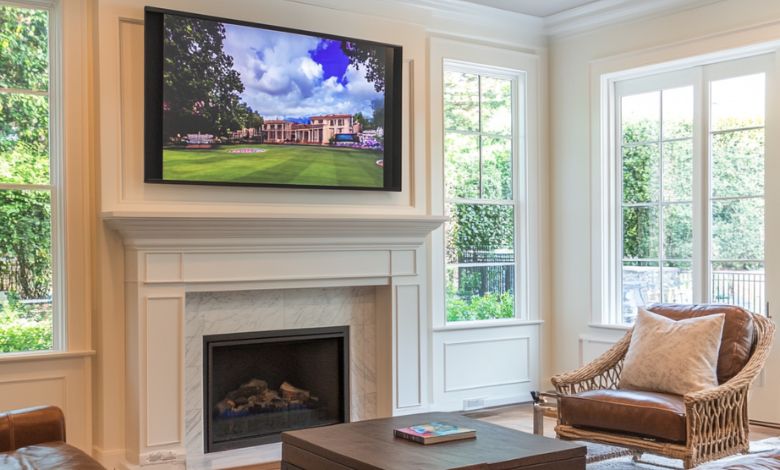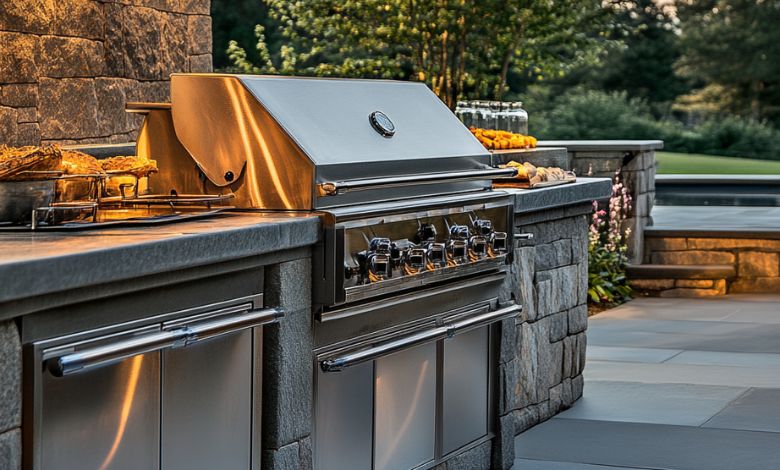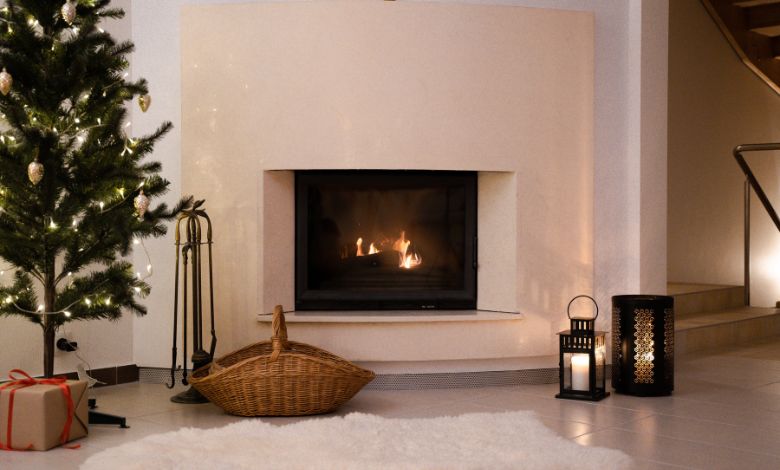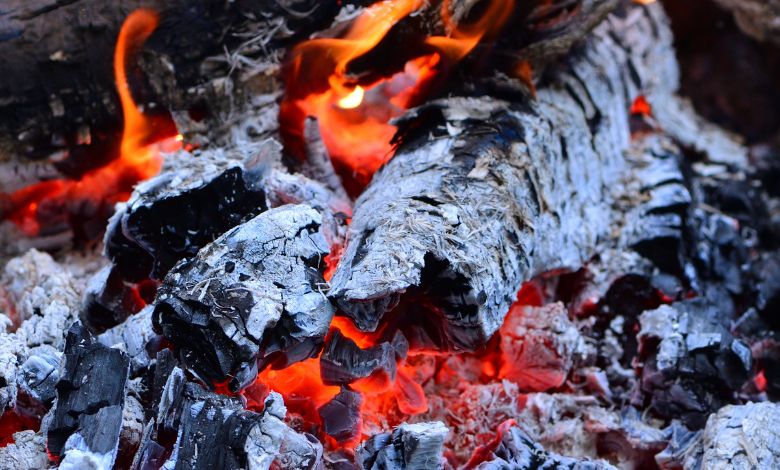Gas vs Wood Fireplaces: Which is Right for Your Home?
Posted by Anna William on Apr 18th 2025
A warm, inviting fireplace does more than just heat up a room, it serves as a centerpiece, adding a touch of elegance, coziness, and warmth to any living space. Whether you're renovating or building from scratch, deciding between a Gas vs Wood Fireplace can be a tough call. Each option presents distinct benefits and factors to consider, ensuring that you select the perfect match for both your lifestyle and home aesthetic.
In this blog, we’ll break down everything you need to know about Gas Fireplace vs Wood, covering efficiency, maintenance, costs, and environmental impact to help you make an informed decision.
The Appeal of a Fireplace
Before diving into the differences between Wood Burning vs Gas Fireplace, let’s talk about why fireplaces remain a top choice for homeowners. They provide ambiance, warmth, and a focal point for a room. Whether it’s the crackling sound of logs in a Wood vs Gas Fireplace or the convenience of instant heat from gas, fireplaces create an inviting atmosphere.
Gas Fireplaces: Pros and Cons
Advantages of Gas Fireplaces
1. Convenience and Ease of Use
A major benefit of gas or wood fireplaces is the convenience they offer, providing immediate heat at the simple touch of a button or flick of a switch. No need to chop wood, clean up ashes, or wait for the fire to catch.
2. Consistent and Efficient Heating
Gas fireplaces provide a steady heat output, making them a reliable option for keeping a space warm. They are designed for efficiency, with many models offering thermostatic control to maintain the perfect temperature.
3. Low Maintenance
Unlike wood-burning fireplaces, gas models don’t produce soot, creosote, or ash. A simple annual inspection and occasional cleaning of the glass and vents are typically all that’s needed.
4. Environmentally Friendly
Gas fireplaces are known for their clean-burning qualities, emitting fewer pollutants compared to wood fireplaces. This makes them an appealing option for homeowners who prioritize environmental sustainability when deciding between a Wood vs Gas Fireplace.
Disadvantages of Gas Fireplaces
1. Lack of Authentic Fireplace Experience
While gas fireplaces have realistic-looking logs and flames, they can’t fully replicate the authentic smell, sound, and feel of burning wood. Some homeowners miss the traditional crackle and scent of burning logs.
2. Initial Installation Costs
If you currently lack a gas line, setting one up could be costly. Installing a gas line to your fireplace may necessitate the help of a professional and incur additional expenses.
3. Dependency on Gas Supply
A gas fireplace won’t work during a gas outage. Unlike a Wood Burning vs Gas Fireplace, where wood can always be sourced, a gas fireplace relies on an external fuel source that could be disrupted.
Wood Fireplaces: Pros and Cons
Advantages of Wood Fireplaces
1. Traditional Ambiance and Aesthetic
There’s nothing quite like the rustic charm of a real wood fire. The aroma of burning logs, the crackling sound, and the warm glow create an unbeatable, cozy atmosphere that gas simply can’t mimic.
2. Independence from Utilities
A wood fireplace operates without electricity or gas, making it an excellent heating source during power outages. This reliability makes it a favorite among homeowners who prioritize self-sufficiency.
3. Cost-Effective Fuel Source
If you have access to a steady supply of wood, this type of fireplace can be more cost-effective in the long run compared to gas. Some homeowners even use fallen trees or scrap wood as free fuel.
Disadvantages of Wood Fireplaces
1. High Maintenance Requirements
Wood-burning fireplaces necessitate consistent maintenance, including the removal of ashes and routine inspections of the chimney. Creosote buildup can pose a fire hazard, necessitating professional chimney sweeping.
2. Lower Efficiency and Heat Output
Compared to gas, wood-burning fireplaces are less efficient at heating a home. A significant amount of heat is lost through the chimney, diminishing the overall energy efficiency.
3. More Effort to Operate
Starting and maintaining a fire takes effort, from gathering and stacking logs to manually lighting and tending to the flames. If you prefer a hassle-free heating option, gas might be the better choice in the Gas Fireplace vs Wood debate.
Cost Comparison: Gas vs Wood Fireplaces
- Installation Costs: Gas fireplaces incur greater costs for installation, particularly when there is a need to install a new gas line. Wood fireplaces may require a chimney or vent system but have lower initial expenses if a structure is already in place.
- Fuel Costs: Gas prices fluctuate, while wood can be free or inexpensive if sourced locally. However, purchasing firewood regularly can add up.
- Maintenance Costs: Gas fireplaces require minimal upkeep, whereas wood fireplaces need frequent cleaning and chimney maintenance, which can be costly over time.
Environmental Impact: Which Is Greener?
- Gas Fireplaces: Produce fewer emissions, making them a cleaner option for the environment.
- Wood Fireplaces: This can contribute to air pollution, especially if burning unseasoned or treated wood. However, using sustainably sourced wood and high-efficiency wood-burning stoves can mitigate some environmental concerns.
Which Fireplace Is Right for You?
Choose a Gas Fireplace if:
- You want a low-maintenance, easy-to-use heating solution.
- You prefer a consistent, efficient heat source.
- You reside in a region where air quality regulations limit the use of wood-burning due to environmental concerns.
Choose a Wood Fireplace if:
- You love the authentic feel, sound, and smell of real wood fires.
- You have access to affordable or free firewood.
- You want a heating option that works during power outages.
Final Thoughts: Making the Right Choice with Embers Living
Gas and wood-burning fireplaces each offer distinct advantages, appealing to varied tastes and needs among homeowners. Whether you choose the convenience of gas or the traditional charm of wood, the key is finding what best fits your lifestyle and heating needs.
If you're still deciding on the perfect fireplace, Embers Living features an extensive range of both gas and wood-burning options. Our experts can help guide you through the decision-making process, ensuring you get the perfect fireplace for your home.
Explore your options with Embers Living today and bring warmth and comfort to your home in the way that fits you best!

